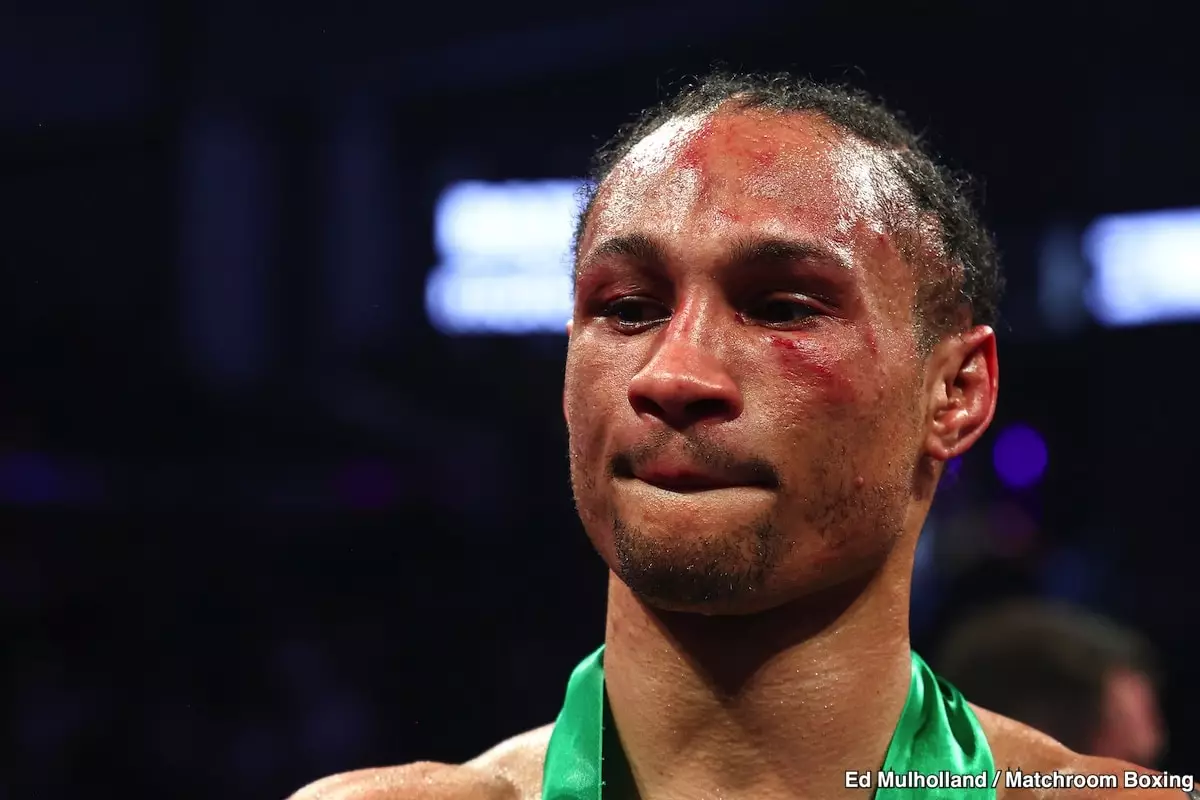Boxing is a sport where timing and preparedness are everything, and for Regis Prograis, a shoulder injury sustained during training appears to have thwarted his ambitions for a triumphant return to the ring. Scheduled to face Oscar Duarte on February 15th at the Honda Center in Anaheim, California, this fight represented a pivotal moment for Prograis, who is still reeling from consecutive defeats. The news of his injury raises significant concerns not only for Prograis’ immediate future but also for the logistics of the anticipated card promoted by Golden Boy.
At 36 years old, with a professional record standing at 29 wins (24 by knockout) and 3 losses, Prograis is at a critical juncture in his career. Having fallen to Devin Haney and Jack Catterall in rather convincing fashion, the pressure to regain his footing has intensified. For a fighter known for his strength and technical prowess, stepping into the ring compromised by injury against a skilled opponent like Duarte could spell disaster—not only prolonging his losing streak but also potentially jeopardizing his standing in the boxing community. Injuries in boxing can grimly signal an athlete’s decline, and for Prograis, this incident may illustrate the fragility of his current competitiveness.
Golden Boy Promotions is now faced with a significant dilemma. With Prograis possibly sidelined, the question arises: Who will step in to face Duarte (28-2-1, 22 KOs)? A last-minute replacement is likely necessary, but whom can they find that would adequately fill the void? This task is fraught with risk; the new fighter must not only be available on short notice but also possess the capability to compete at a level befitting a main event. Should Duarte accept a substitute opponent without adequate preparation, the potential for an upset or a disappointing bout is high, raising further questions about the viability of the match as a feature event on DAZN.
Prograis’ recent missteps against top-tier opponents have revealed vulnerabilities that he must address. The blueprint for defeating fighters like Haney has been established; however, Prograis did not capitalize on the opportunities for adaptation or improvement before his bout with Haney. The lack of strategic evolution in his approach could be detrimental as he continues to compete against rising prospects. His power, once his hallmark, now risks becoming less prominent in the face of more fundamentally sound opponents who can outmaneuver him.
Suggesting Ernesto Mercado as a potential opponent for Duarte raises an important discussion about fight matchmaking practices. Mercado, while a talented fighter, may not be the ideal quick-fix solution for Golden Boy due to his competitiveness. This reflects the larger issue in boxing where finding suitable opponents often involves delicate balance; they must be challenging yet marketable. As Prograis navigates this challenging period, he must focus on rehabilitation and strategic reevaluation to ensure he can effectively return to form when the opportunity presents itself again.
Regis Prograis faces a crucial moment in his career not merely due to a physical setback but because of the broader implications it has for his professional identity and future in boxing. The need for careful planning and strategic shifts could dictate whether he reignites his promising journey or continues to grapple with missed opportunities.

